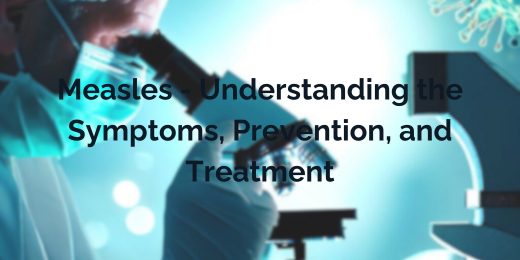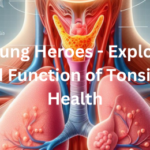Measles symptoms and prevention
Measles, a highly contagious viral infection, is the focus of this introduction. With its rapid transmission, it is crucial to comprehend its symptoms, prevention, and treatment. Measles symptoms typically include fever, rash, cough, and runny nose, and can lead to complications such as pneumonia and encephalitis.
Understanding the signs helps in early detection and prompt medical attention. Prevention plays a vital role in curbing the spread of measles, and vaccination, along with good hygiene practices and isolation of infected individuals, is key.
Treatment involves supportive care, such as rest, hydration, and symptom management, while seeking medical advice is imperative for proper guidance. By being aware of measles symptoms and prevention strategies, we can effectively combat this infectious disease and protect the health of individuals and communities.
Symptoms of Measles
Identifying the symptoms of measles and taking prevention measures are essential for managing this highly contagious viral infection. Measles symptoms typically include fever, rash, cough, and runny nose, and can lead to severe complications if not addressed promptly. Recognizing these symptoms is crucial in seeking timely medical attention and implementing preventive measures to limit the spread of the virus.
Vaccination is the most effective method of prevention and plays a vital role in protecting individuals and communities. Good hygiene practices, such as regular handwashing and covering the mouth and nose when coughing or sneezing, also contribute to preventing the transmission of measles. By understanding the symptoms and prioritizing prevention, we can reduce the impact of measles and safeguard the well-being of individuals through early intervention and effective preventive strategies.
Transmission and Prevention
Understanding how measles spreads and implementing preventive measures are essential in controlling its transmission. Measles is highly contagious and primarily spreads through respiratory droplets when an infected person coughs or sneezes. To prevent the spread of measles, vaccination, good hygiene practices, and isolation are crucial. Vaccination provides immunity and reduces the risk of infection.
Practicing regular handwashing, covering the mouth and nose when coughing or sneezing, and avoiding close contact with infected individuals minimize transmission. Isolating individuals with suspected or confirmed cases of measles helps contain the virus. By comprehending transmission routes and following preventive measures, we can effectively reduce measles incidence and protect public health.
Diagnosis and Medical Care
When it comes to the diagnosis and medical care of measles cases, healthcare professionals employ various methods. Diagnosis involves a combination of physical examination and laboratory tests. During the physical examination, doctors assess symptoms such as fever, cough, runny nose, and the characteristic measles rash.
Laboratory tests, including blood tests, are conducted to confirm the presence of the measles virus or detect specific antibodies. Once a measles diagnosis is established, medical care focuses on symptom alleviation, prevention of complications, and reducing transmission. Supportive measures like rest, hydration, and fever-reducing medications are administered.
Isolation precautions are crucial to prevent the spread of this highly contagious virus. Vaccination remains the most effective method for measles prevention, emphasizing the importance of maintaining high immunization rates to protect individuals and communities
Complications and Risk Factors
Measles can give rise to various complications, including pneumonia and encephalitis, which can significantly impact a patient’s health. Pneumonia, characterized by inflammation of the lungs, can lead to breathing difficulties and further complications. Encephalitis, on the other hand, involves inflammation of the brain and can result in neurological symptoms and long-term impairments.
Certain risk factors can contribute to the severity of a measles infection. These factors include a compromised immune system, malnutrition, vitamin A deficiency, and being an infant or young child. Individuals who are unvaccinated or have not received the complete recommended doses of the measles vaccine are also at a higher risk. Recognizing these complications and risk factors emphasizes the importance of measles prevention measures, such as timely vaccination and maintaining high immunization rates to protect vulnerable populations.
Treatment and Recovery
The treatment and recovery process for measles primarily revolves around providing supportive care to alleviate symptoms and aid in the patient’s recovery. This includes ensuring adequate rest, proper hydration, and managing specific symptoms such as fever. It is crucial for individuals diagnosed with measles to seek medical attention promptly and follow their healthcare provider’s guidance.
This may involve adhering to prescribed medications, implementing isolation precautions to prevent further transmission, and monitoring for any potential complications. While there is no specific antiviral treatment for measles, supportive measures play a vital role in promoting healing and reducing the risk of complications. By actively seeking medical care and adhering to professional advice, individuals can increase their chances of a smoother recovery from measles.



